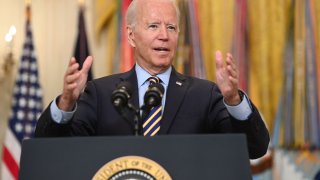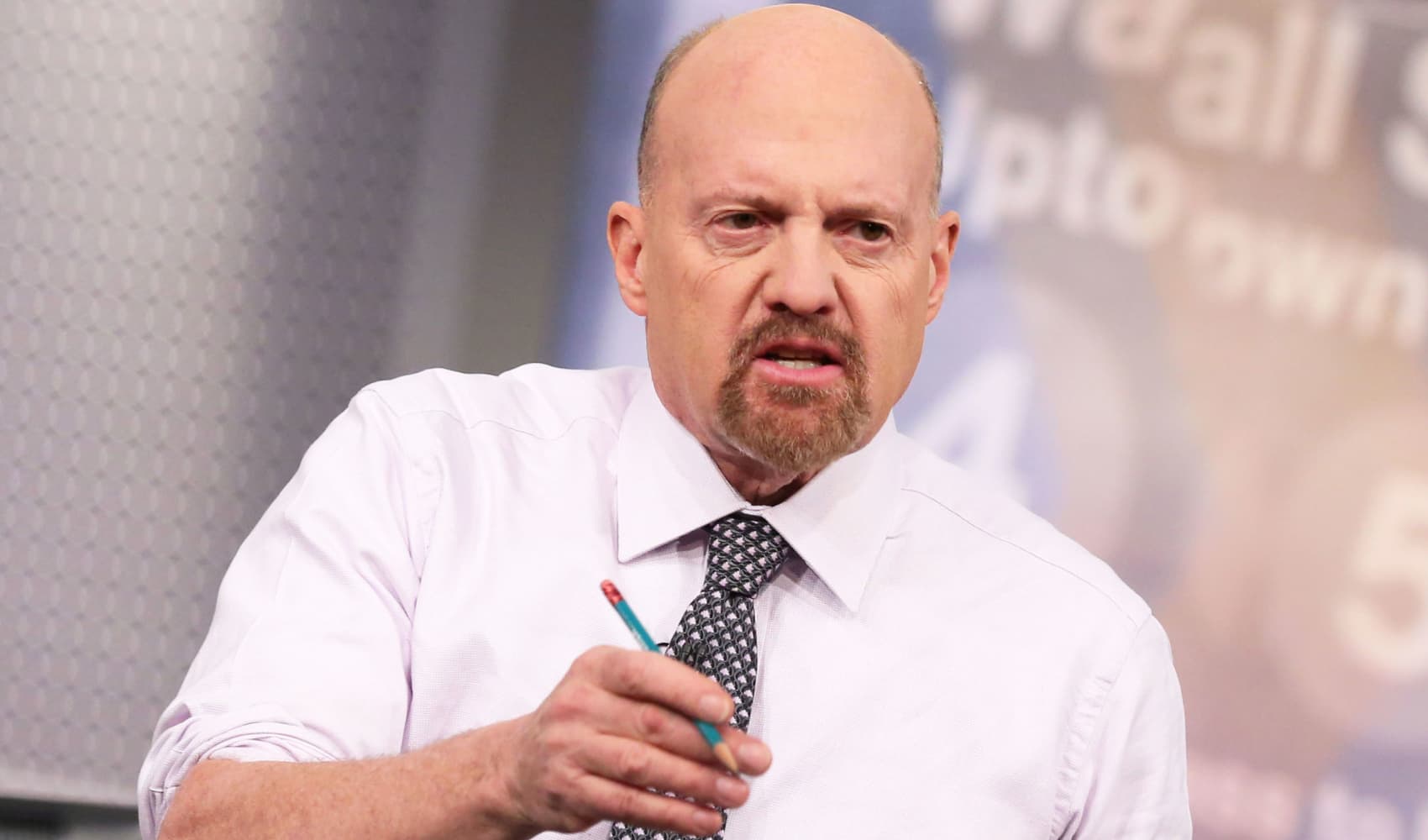
- President Joe Biden signed a new executive order aimed at cracking down on anti-competitive practices in Big Tech, labor and numerous other sectors.
- The sweeping order, which includes 72 actions and recommendations that involve a dozen federal agencies, is intended to reshape the thinking around corporate consolidation and antitrust laws.
- Biden's administration laid out the case that the biggest companies in the tech sector are wielding their power to box out smaller competitors and exploit consumers' personal information.
President Joe Biden on Friday signed a new executive order aimed at cracking down on anti-competitive practices in Big Tech, labor and numerous other sectors.
"Capitalism without competition isn't capitalism. It's exploitation," Biden said at the White House in a speech before signing the directive.
Get top local stories in Philly delivered to you every morning. Sign up for NBC Philadelphia's News Headlines newsletter.
The sweeping order, which includes 72 actions and recommendations that involve more than a dozen federal agencies, is intended to reshape the thinking around corporate consolidation and antitrust laws, according to a White House fact sheet.
Those wide-ranging goals and initiatives include:
- Urging the Federal Trade Commission to "challenge prior bad mergers" that previous administrations let slide
- Pushing the FTC to ban occupational licensing restrictions, arguing they "impede economic mobility"
- Encouraging the FTC to ban or limit noncompete agreements
- Encouraging the Federal Communications Commission to restore "net neutrality" rules that were undone during the Trump administration
- Asking the FCC to block exclusivity deals between landlords and broadband providers
- Lowering prescription drug prices by supporting state and tribal efforts to import cheaper drugs from Canada
- Allowing hearing aids to be sold over the counter
- Establishing a "White House Competition Council" to lead federal responses to large corporations' growing economic power
"The impulse for this executive order is really around where can we encourage greater competition across the board," the White House's chief economic advisor, Brian Deese, told CNBC's Ylan Mui in an exclusive interview that aired earlier Friday morning.
Money Report
Through its tech-related actions, Biden's order aims to make the case that the biggest companies in the sector are wielding their power to box out smaller competitors and exploit consumers' personal information.
The order calls for regulators to enact a slew of reforms, including increasing their scrutiny of tech mergers and putting more focus on maneuvers such as "killer acquisitions," in which firms acquire smaller brands to take them out of the market.
The tech giants' tightened grip has led to a decline in innovation, Deese told Mui.
Those platforms have "created significant problems," Deese said. That includes "problems for users in terms of privacy and security" and "problems for small businesses in terms of entering markets," he said.
The executive order "is not just about monopolies," Deese said, "but it's about consolidation more generally and the lack of competition when you have a limited set of market players."
He noted that some research suggests wages are lower in more concentrated markets that are dominated by just a handful of firms. A White House fact sheet cites a May 2020 paper from the Journal of Human Resources, which used CareerBuilder.com data to find that market consolidation suggests a decrease in wages by double-digit percentages.
The order was unveiled just a few weeks after the House Judiciary Committee voted to advance six antitrust bills aimed at revitalizing competition in the tech sector.
The bills, which would make it harder for dominant firms to complete mergers and outlaw certain common business models for such firms, have faced significant bipartisan pushback from those concerned that they don't go far enough or will have unintended side effects.
In late June, a judge threw out complaints from the Federal Trade Commission and a group of state attorneys general alleging Facebook has illegally maintained monopoly power.
Biden's executive order also calls on the FTC to craft new rules on Big Tech's data collection and user surveillance practices, and asks the agency to prohibit certain unfair methods of competition on internet marketplaces.
The order could provide some relief to small and medium-sized businesses that have complained of the allegedly crippling grip of tech companies such as Amazon, Apple, Facebook and Google over digital markets.
Biden's executive order doesn't impose its will on Big Tech companies unilaterally, and instead frequently calls on independent agencies to take action.
But new FTC Chair Lina Khan, a Biden appointee who at 32 became the youngest person ever to hold the role when she was sworn in last month, has already carved out a reputation as a vocal advocate for reforming and beefing up regulations on tech giants.
Amazon is calling for Khan to be recused from ongoing probes of its business, arguing she lacks impartiality and accusing her of repeatedly saying the company is "guilty of antitrust violations and should be broken up."
WATCH: How US antitrust law works, and what it means for Big Tech






